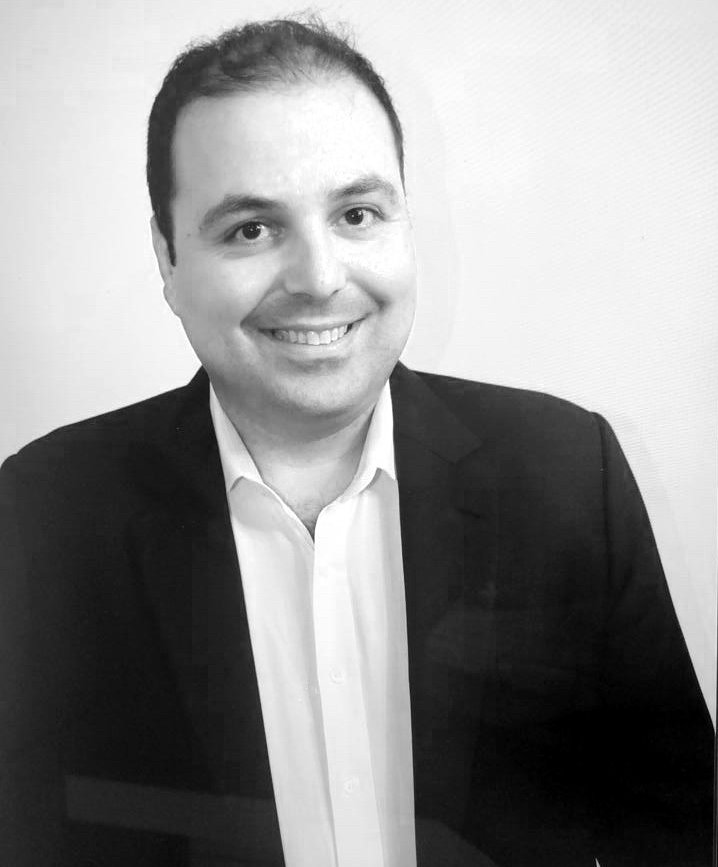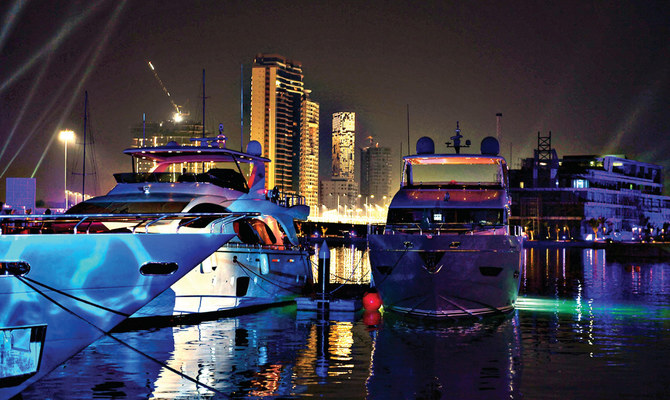RIYADH: Saudi Arabia is reaping the rewards of its substantial investments in diversifying its economy, with a key focus on the entertainment and tourism sectors. These investments have not only improved the nation’s income potential but have also paved the way for a departure from its reliance on hydrocarbons.
The results of these efforts are evident in the figures published by the Saudi Central Bank for July, which revealed a surplus of $17.7 billion in the Kingdom’s current account balance during the first quarter of 2023. This reflects a significant revenue boost from tourism, reaching $9.8 billion in the first quarter compared to $3 billion in the same period the previous year.
The OECD Tourism Trends and Policies 2022 report validates Saudi Arabia’s commitment to developing its tourism industry as one of the Kingdom’s fastest-growing sectors, significantly contributing to the national economy while creating a substantial number of jobs.
Adel Noueihed, managing director of Imagination Middle East, a global creative agency, highlighted that on a global scale, entertainment contributes to 4 percent of gross domestic product, while tourism accounts for 7 percent.
“When it comes to economic diversification, this is what KSA should aim to achieve when opening up these sectors,” he told Arab News.
“And these numbers make sense if you’re trying to diversify away from hydrocarbons that these sectors would be two really clear pillars of things the government can do to diversify,” Noueihed added.

Christophe Castagnera, strategy head of Imagination Middle East, echoed this sentiment, highlighting the untapped potential for experiences in Saudi Arabia.
“We know in Saudi that in every vertical, there are sports, music, technology and performing artists, whether traditional, hyper modular or futuristic, like NEOM. There is now a whole new opportunity for these spaces to fill, which is brilliant,” he said.
Castagnera underscored that these ventures are “a big part and a big driver” of what the government is doing with its strategic work and new initiatives.
At the regional level, the strategy head pointed out that he has never witnessed such a multi-layered approach to building the experience economy, especially in terms of the intricacies involved in planning, investment, creative thinking and imagination required in the projects.
Driving growth
Saudi Arabia’s Vision 2030 is driving specific support measures for the entertainment sector, with a goal of contributing over $23 billion or 3 percent of GDP and creating more than 100,000 jobs by 2030. It also has a $64 billion investment plan to further bolster the sector’s growth.
“It’s (entertainment) a booming industry globally,” added Noueihed. “I think as people get more prosperous in certain parts of the world, they’ve got more disposable income, more time, and they want to spend that in different cultural entertainment activities. It’s a good play.”
The tourism sector, too, is undergoing rapid expansion, with the aim of tripling employment to 1.6 million people and tripling its contribution to GDP to 10 percent by 2030.

There’s an untapped market for experien-ces now in Saudi Arabia, which is brilliant.
Christophe Castagnera, Strategy head of Imagination Middle East
Castagnera outlined two key facets of the entertainment and tourism sectors.
“There’s the domestic one as well as the international one. I think domestically there’s been entertainment hubs in Saudi Arabia, more from an underground or in-home point of view,” he explained.
However, with the ambitious Vision 2030 initiative, Castagnera outlined that substantial investments have been made to draw various levels of entertainment ventures.
He highlighted two prominent ones, saying, “Qiddiya and Seven being the two main ones” as the primary drivers of this transformation.”
Even in the business sector, the Kingdom has film commissions, film sets and gaming, which are critical drivers for investment in the entertainment industry.
Economic showstoppers
One standout project is Saudi Entertainment Ventures, known as Seven, which recently announced a $346 million amusement destination. This venture is poised to offer immersive experiences and family recreations, enhancing the quality of life for millions of Saudis.
The unveiling of Seven’s project came at an exciting time for Saudi Arabia as its economy grew by 1.1 percent in the second quarter compared to the year-ago period, spurred by a 5.5 percent surge in non-oil activities.
Seven, a wholly owned subsidiary of the Public Investment Fund, has begun construction work on its SR1.3 billion ($346.54 million) entertainment destination in Madinah.
The project, in collaboration with BUJV, a joint venture by Al Bawani Co. and UrbaCon Trading & Contracting, aligns with the Kingdom’s strategy and vision to improve the lives of Saudis, revitalize communities, and boost tourism.

On a global scale, 4 percent of GDP comes from entertainment, and 7 percent comes from tourism. When it comes to economic diversification, this is what KSA should aim to achieve.
Adel Noueihed, managing director of Imagination Middle East
“Our entertainment destination in Madinah will transform the entertainment landscape of the region and bring new, unique, and exciting experiences to the people of Madinah, supporting Seven’s aims to enrich the quality of life for millions of Saudis,” said Seven Chairman Abdullah Al-Dawood, in a statement at the launch.
The unveiling of Seven’s project is part of a broader trend in Saudi Arabia’s entertainment and tourism sectors, which have been driving positive economic growth in recent years.
This growth is evident in the International Monetary Fund’s projection of Saudi Arabia’s non-oil GDP, which is expected to increase from 3.9 percent in 2020 to a solid 4.3 percent in 2023.
This steady rise in net flows from tourism activities underscores the nation’s successful diversification efforts away from a predominantly hydrocarbon-based economy.
Addressing challenges
While challenges remain, particularly in job creation, there is a push to overcome them.
What must still be seen is the steady growth of the private sector and the creation of jobs over the next few years for the young Saudi population, among which two-thirds are under 30. This change, too, is happening.

Our entertainment destination in Madinah will transform the entertainment landscape of the region and bring new, unique, and exciting experiences.
Abdullah Al-Dwood, Seven chairman
“The challenges will take time, but the ambition is there,” said Noueihed. “When it comes to enhancing the local sector, the quick route for a lot of entertainment and even tourism is to import intellectual property.”
What will transform over time, continued Noueihed, is how local brands and flavors emerge in the Kingdom, encouraging an artistic and cultural renaissance in the region that will grow into a global industry to reckon with.
“All they need is the right tools, exposure, and funding to create exciting local IP that’s nuanced and relevant to the local market. I think that’s quite important as well. And that will differentiate Saudi from other parts of the GCC and even the Arab world,” Noueihed concluded.
















